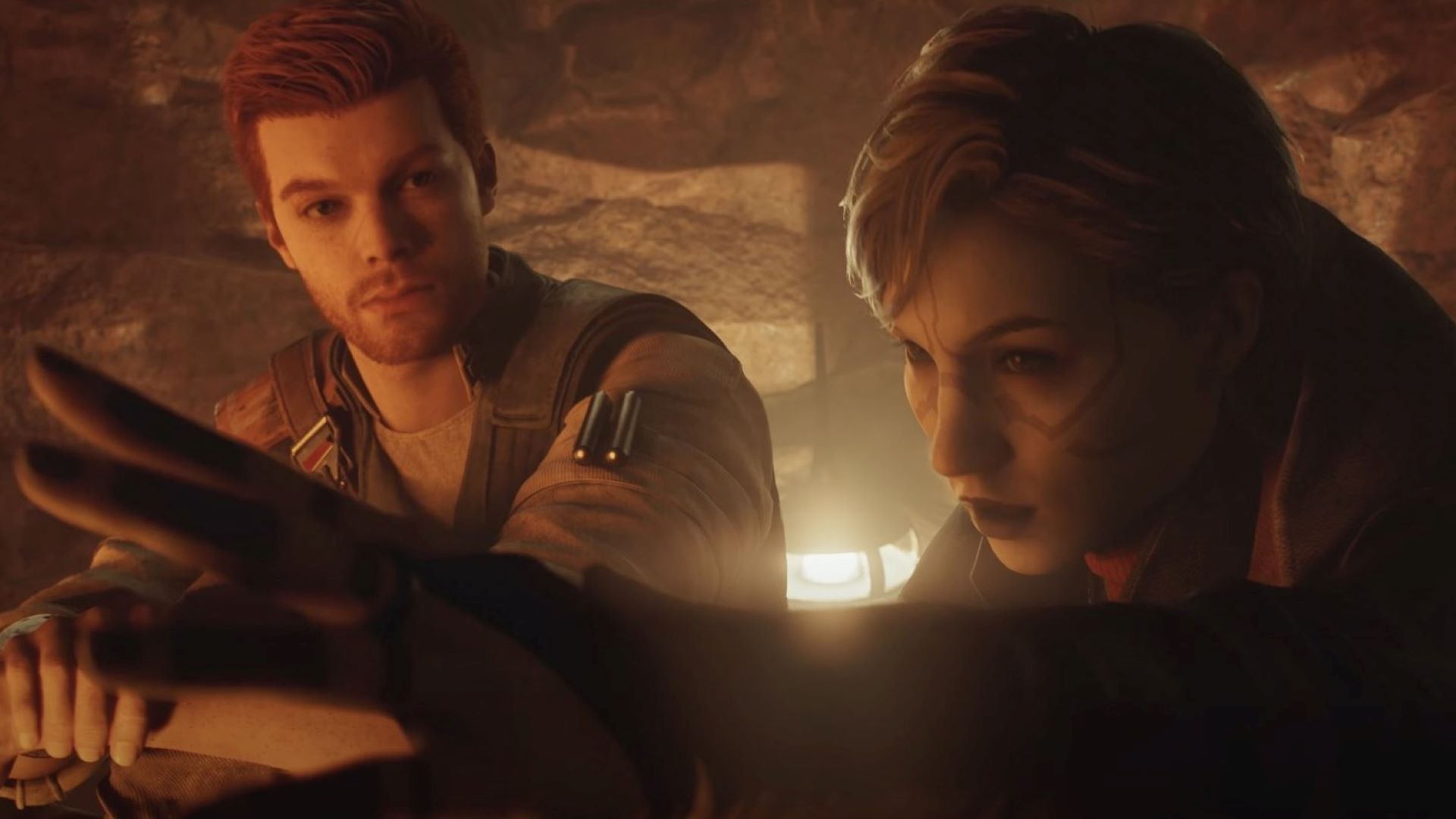
Yesterday, EA became the latest company to lay off a notable portion of its staff. Following Sony earlier this week and Microsoft in January, 670 redundancies were announced across the publisher, adding to an industry-wide tally that has resulted in thousands of job losses in the first two months of 2024 alone. Among news of those layoffs came confirmation that EA had also canceled or shuttered several projects.
Those projects include story-driven Battlefield efforts, and several mobile games, but the headline cancellation is to the unannounced Star Wars FPS that was being developed by Jedi: Fallen Order studio Respawn. Recent reports suggested that the game would be based around the Mandalorians, and built around the studio's experience with its parkour and mech-based Titanfall series. It was a hugely exciting prospect, but now it'll never see the light of day.
And if that came can't get made, what hope is there for genuine originality in this industry at the moment? Many factors – from the changing whims of the market to unsuitable technology to a lack of funding – can lead to the cancellation of a project, but something feels particularly doom-laden about this.
A No Hope
Star Wars remains one of the highest-grossing entertainment franchises of all time. It's been through a renaissance in recent years driven in no small part by the multi-million sales of Cal Kestis' adventures and a streaming push led by The Mandalorian, the very same character who would likely have shaped this new game if reports of its setting were accurate. Thanks to Call of Duty, the FPS remains an absolute powerhouse genre in which Respawn also has an excellent track record – with Apex Legends and its cult-classic Titanfall and its sequel.
If a studio with a history of making some of the best Star Wars games and best FPS games can't get its Star Wars FPS made due to the impact of layoffs and executive restructuring, I can't see how anything is supposed to get made, or how any project can feel safe. Perhaps if you work at Rockstar, which is currently aiming to get the multi-billion dollar project that is GTA over the line, or if you were lucky enough to work on a breakout success like Palworld or Helldivers, you'd currently be feeling relatively secure in your job and the game you're working on. But beyond that? I just don't know.
Major publishers have made it clear that they're refocusing in on major hits and established IP; outgoing PlayStation boss Jim Ryan spoke of a need to focus on "experiences gamers and creators have come to expect from us"; EA is looking to "double down on our biggest opportunities"; Riot Games said it most clearly when it axed its indie publishing label amid efforts to refocus its commitment on its core games. But smaller studios are being hit too – this week, Die Gute Fabrik, developer of the acclaimed Mutatzione and Saltsea Chronicles announced its closure due to the inability to secure funding for its next project. In recent days, Life is Strange: True Colors developer Deck Nine and horror anthology devs Supermassive also announced redundancies.
In an environment like this, it's hard to see some of the best games of the past few years ever being made. Games like Pentiment, Grounded, or Hi-Fi Rush, all of which required the efforts of small, passionate groups of developers within established companies, often working outside their studio's expertise, seem like an impossibility today. The focus is being increasingly placed on major hits, and even those aren't enough to ensure all of their creators get to keep their jobs.
Sign up to the GamesRadar+ Newsletter
Weekly digests, tales from the communities you love, and more
And if that's the case, how are the breakouts – the projects that no-one sees coming, that challenge established norms and even form brand-new genres, the games that usually make this such a fascinating and vibrant industry to be a part of – supposed to get made in their place? A handful of tentpole releases a year isn't enough to keep this entire industry afloat, and while passion will continue to drive game development forward, the death of what should have been a sure-fire hit makes it clear as day that we're in for a rough ride.
These upcoming indie games are exactly what I'm hoping we see more of in the near-future.

I'm GamesRadar's news editor, working with the team to deliver breaking news from across the industry. I started my journalistic career while getting my degree in English Literature at the University of Warwick, where I also worked as Games Editor on the student newspaper, The Boar. Since then, I've run the news sections at PCGamesN and Kotaku UK, and also regularly contributed to PC Gamer. As you might be able to tell, PC is my platform of choice, so you can regularly find me playing League of Legends or Steam's latest indie hit.


